
Book
Korytkowska and Hatłas's essay, blurring the boundaries between cinema and literature, is a universal story about the difficulty and the satisfaction directly associated with any act of creation.
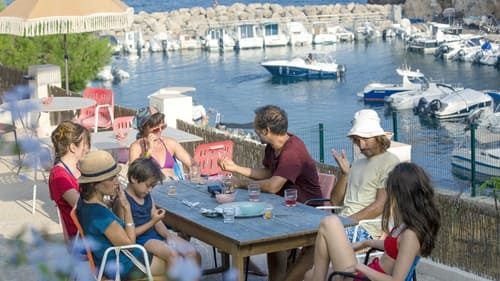
Writer
It’s summer, the heat is overwhelming and the weather is out of whack. A group of friends are enjoying their yearly holiday in their favorite little village, wedged between the sea and the mountains. As usual, they are bored and eat and drink a lot. They do not pay attention to the fire which progresses on the mountain nearby, nor to the world around them. But this year, a mysterious man arrives from the sea and shakes up their seemingly balanced existence...

Self (archive footage)
In May 1974, Valéry Giscard d'Estaing became President of the Republic and wanted to bring about a new era of modernity. One of his first decisions was to break up the ORTF with the creation of three new television channels: TF1, Antenne 2 and FR3. Three new public channels but autonomous and competing. It is a race for the audience which is engaged then, and from now on the channels will make the war! This competition will give birth to a real golden age for television programs, with variety shows in the forefront. The stars of the song are going to invade the living rooms of the French for their biggest pleasure. This unedited documentary tells the story of the metamorphosis of this television of the early 1970s, between freedom of tone, scandals, political intrigues and programs that have become mythical.
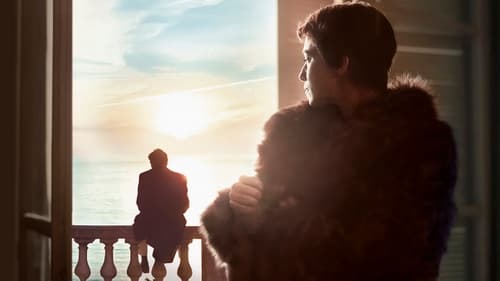
Theatre Play
Accompanied by her lover, Suzanna, 40, views a Riviera beach house for her family's summer vacation. This day, this break in her routine, in this new house, will mark a turning point in her life. Based on the Marguerite Duras play of the same name, Suzanna Andler is the portrait of a woman trapped in her marriage to a wealthy, unfaithful businessman in the 1960s. She must choose between her conventional destiny as a wife and mother, and her freedom, embodied by her young lover.
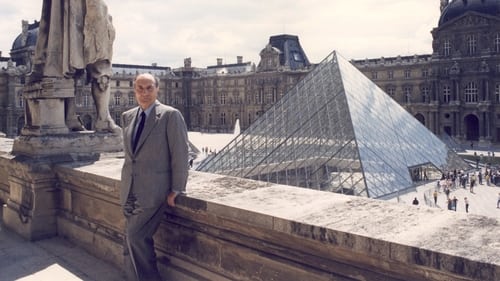
Self (archive footage)
On the occasion of the fourty years anniversary of François Mitterand's election, a look back to the relationship between the President and artists, from admiration to manipulation.

Self
25 years ago, Marguerite Duras passed away at the age of 81. At the evocation of this name, one spontaneously thinks of the intellectual superstar Duras, adulated or hated, with her big glasses and turtleneck, who received the Goncourt prize for her mythical novel, "L'Amant". But behind the superstar writer, who either fascinates or annoys, and behind his double novel, the young Indochinese girl, with her hair pulled back and lips underlined with lipstick, which is precisely the subject of "L'Amant", are hidden other, perhaps less well-known facets of the character, a writer, but also a filmmaker, journalist, a woman committed to the left, a transient lover or a loving mother. Marguerite Duras will have had 1000 lives in one and many other faces. This film attempts to get as close as possible to this extraordinary destiny.
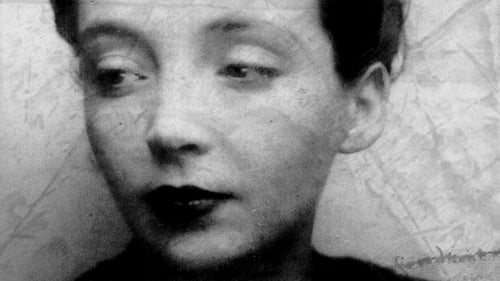
Self - Writer (archive footage)
When French writer Marguerite Duras (1914-96) published her novel The Sea Wall in 1950, she came very close to winning the prestigious Prix Goncourt. Meanwhile, in Indochina, France was suffering its first military defeats in its war against the Việt Minh, the rebel movement for independence.

Self (archive footage)
1970년대와 80년대에 활동한 여배우 델핀 세리그와 영화감독 카롤 루소풀로는 여성 해방운동을 위해 새로운 비디오 기술을 활용했다. 영화는 아카이브 자료들을 토대로 당대의 사건들 속에 개입하는 그들의 모습을 조명한다.

Self (archive footage)
About the Gabriel Matzneff affair and pedophilia in French culture and society from the 1950s to the present day. "It was not very difficult to know who Matzneff was at the time." Vanessa Springora denounces thus, in an interview with the Parisian , the support which benefited the writer Gabriel Matzneff , in the years 1970 and 1980. The author fifties then maintains an affair with the young girl, aged 14 years. A relationship under control that the editor tells in Le Consentement (éd. Grasset), published Thursday. "After having analyzed the work " , the Paris public prosecutor's office announced Friday January 3 the opening of an investigation for "rapes committed on the person of a minor of 15 years".

Novel
X, a film location scout, spend his time travelling from place to place looking for filming locations, at the same time that he's looking for funding for the film he wrote himself. In the middle of nowhere, as in the nowhere of his life, he stumbles on Y, the woman for whom he has been waiting all his life.
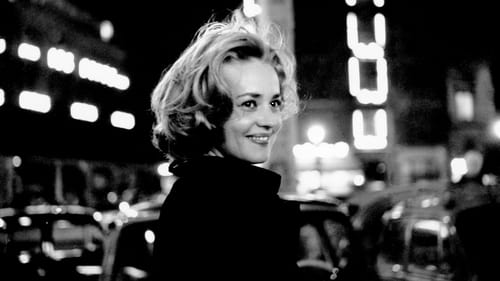
Self - Writer (archive footage)
An account of the life of actress Jeanne Moreau (1928-2017), a true icon of the New Wave and one of the most idolized French movie stars.
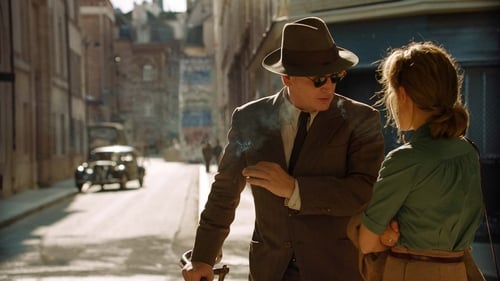
Novel
In the last days of the Nazi-occupied France, writer Marguerite Duras awaits the return of her husband, Robert Antelme, arrested for being a Resistance fighter and then deported, while she maintains a tense relationship with her ambiguous lover and a dangerous game with a French collaborationist. Even when the Liberation arrives, she must still endure the unbearable pain of waiting.
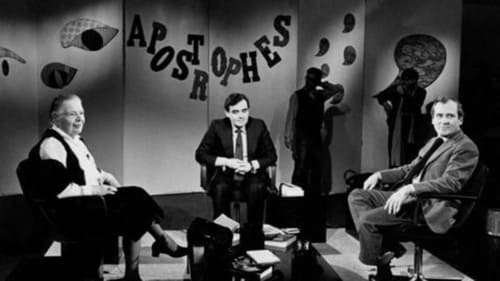
Self (archive footage)
40 years of "Apostrophes". Hours and historical meetings, Pierre Assouline has composed an anthology of the best extracts presented in the form of a primer, which he had commented on by a surprised Bernard Pivot.

Novel
가족과 떠난 여름 휴가 중에 한 중년 여인 마리아. 우연히 범죄를 저지르고 도피 중인 이민자 남자를 만나게 되고. 그의 도피 행각을 돕다가 치명적인 관계에 빠지게 된다. 한편, 자신의 삶의 의미를 찾던 마리아는 자아를 찾기 위한 여정을 시작하는데... 그녀의 가슴 속 숨겨진 대담한 내면의 이야기가 펼쳐진다!

self (archive footage)
Documentary on famous writer Marguerite Duras and her paradoxical relation to the seventh art by her former film editor.

Novel
The film centers around a young French widow and her two adolescent children attempt to carve out a meager life for themselves by farming rice fields alongside the ocean in French Indo-China in the 1930's. Their efforts are hampered each year by the presence of the sea, which invariably floods the fields with saltwater and wipes out the crops. In desperation, the mother realizes that their only hope lies in the construction of a sea wall to prevent continued flooding, but the mother must cut a swath through the local bureaucracy in an almost Sisyphean attempt to make this happen. Meanwhile, her obstinate daughter, Suzanne, draws the romantic obsessions of a well-to-do Chinese gentleman, Monsieur Jo; though he could easily provide a way out, the possibility of a romantic relationship between Jo and Suzanne could just as easily fall prey to local racial prejudices that would damage or ruin the lives of both.

Author
An alcoholic married man discovers he has fallen out of love with his moody wife.

(voice)
Luc Lagier puts Alain Resnais' film back in its historical context and in the filmmaker's biography. He tells the story, then the development of what was originally intended to be a short documentary film and which turned into an unusual allegory. Composed of fascinating archives, including notably the correspondence between Duras and Resnais, this analysis of 'Hiroshima mon amour' manages to put the film in perspective while detaching itself from it. A rare and captivating work.

Novel
Set mostly in the woods in the south of France, a fateful encounter changes the lives of a man and a woman.

Author

Herself (archive)
On June 3, 1991, Marguerite Duras gave me her last published work, "The North China Lover", autographed for the first time. She wrote: "For my friend Dominique Auvray, in memory of a wonder of wonders: a still recent past, when we worked together in the cinema". This is a portrait of her as she was cheerful and serious, authentic and provocative, considerate and categorical, but first and foremost young and free.

Adaptation
The Malady of Death is an adaptation of Marguerite Duras's story of the same name: her text comprises the voiceover, which is a particular reading of the story in which word and image, in a complex interplay, explore male sexuality.

When Duras saw 'La mort du jeune aviateur anglais', she told Benoît Jacquot that the film was about him, not her. "She treated me like a thief. So I offered to make another film, where she could say whatever she wanted about her life as a writer. That’s how we did Écrire. I brought the same film crew. We went to her house at Neauphle-le-Château and we set up in the room she called 'the music room,' where there was a piano and you could listen to records. She settled in and for two days of non-stop filming, she talked."

Marguerite Duras tells the story of the death of a young English aviator in a French village.
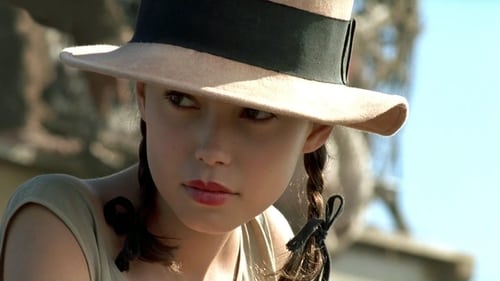
Novel
가난한 10대 프랑스 소녀, 부유한 남자를 허락하고 처음으로 육체적 쾌락을 경험하게 된다. 불우한 가정 환경과 자신에 대한 혐오가 더해 갈수록 소녀는 욕망에 빠져들고 격정적인 관능에 몰입한다. 욕정일 뿐 사랑이 아니라고 부정하지만 평생 잊을 수 없는 운명으로 남게 되는데….

Writer

Original Story
The film tries to retain the memory, the compulsion and the nostalgia of a text by Marguerite Duras.

Novel
In the space of a short 65 minutes, a woman enters the luxury apartment of a wealthy man with an eccentric fascination for the female form and is paid both for her sexual favors and for lying there naked and letting him examine the aesthetics of her body. For most of the hour, as the concise narration of Marguerite Duras' novel on eroticism and aesthetics fills the aural gaps, actress Marie Colbin's form fills the visual gaps. But unless viewers consider the feminine eyeball or microscopic views of skin exotic and worth lingering over, the eroticism lies more in the imagination than on the screen. In fact, the female body lying on the bed, taken away from the spirit that animates it, is really just a corpse -- raising the question, exactly what is the "malady of death?"

Writer
40세처럼 보이는 7살짜리 아이가 등교를 거부한다. 이유는 자신이 모르는 것을 배우기 싫어서이다. 그는 뒤바뀐 문장과 논리적인 주장을 통하여 허황되게 들리기도 하는 철학적이고, 실제적이고, 종교적인 사고 구조를 드러낸다.

Director
40세처럼 보이는 7살짜리 아이가 등교를 거부한다. 이유는 자신이 모르는 것을 배우기 싫어서이다. 그는 뒤바뀐 문장과 논리적인 주장을 통하여 허황되게 들리기도 하는 철학적이고, 실제적이고, 종교적인 사고 구조를 드러낸다.

Herself
She was the sort of woman who spared neither herself nor others—and arguably qualifies as 20th-century France’s greatest femme de lettres. In this interview, the late novelist and filmmaker talks openly about the hardship and the romance of her childhood in French Indochina, sharing how this period haunted her life and shaped her work. Excerpts from her films and readings from her books by actress Elizabeth Rider and Duras herself—including The Lover, winner of the Prix Goncourt and translated into more than forty languages—bring to life those formative years in Vietnam.

Conversation between a woman (Duras) and a man (D. Noguez) about a woman and a man.

Self
This afterword to India Song (Duras' celebrated 1975 film) is organized in several parts. It begins with an interview to Marguerite Duras by Dominique Noguez, an expert in her work; the interview links the film to the two movies whom it's related to: The Ravishment of Lol V. Stein and The Vice-Consul.
Several themes are tackled: childhood, autobiographical traces, relationships between differents characters and different films and more. India Song's main actors — Delphine Seyrig and Michael Lonsdale, who played Anne-Marie Stretter and the French vice-consul — join the conversation and talk about their roles and their craft. Marguerite Duras then evokes her memories of the shooting with the composer Carlos D'Alessio and her camera operato Bruno Nuytten.
The conversations are punctuated by clips of the film.

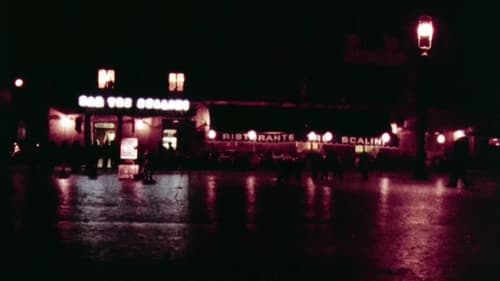
Writer
'The subject of this film is the conversation between a man and a woman. A couple, maybe lovers, maybe married, it doesn't matter. (...) During this conversation, we do not see but the city of Rome. I wanted to transmit that what Rome provokes in me, the feeling of an intrinsic matter, indissoluble, in difference with Paris, made of small parks and open spaces, crossed by the sky and the wind. Hand in hand with the film, the difficulty of the two lovers assumes a clearer, more explicit form. But as much as, in my opinion, it is impossible to describe and film Rome, the difficulty in the love of a couple can never be totally understood.' - Marguerite Duras, Venice film festival catalogue, 1982.

Director
'The subject of this film is the conversation between a man and a woman. A couple, maybe lovers, maybe married, it doesn't matter. (...) During this conversation, we do not see but the city of Rome. I wanted to transmit that what Rome provokes in me, the feeling of an intrinsic matter, indissoluble, in difference with Paris, made of small parks and open spaces, crossed by the sky and the wind. Hand in hand with the film, the difficulty of the two lovers assumes a clearer, more explicit form. But as much as, in my opinion, it is impossible to describe and film Rome, the difficulty in the love of a couple can never be totally understood.' - Marguerite Duras, Venice film festival catalogue, 1982.

Narrator
TV series directed by Varda in which she gives thoughts to her favorite images and why she is drawn to them (in short one minute segments per image)
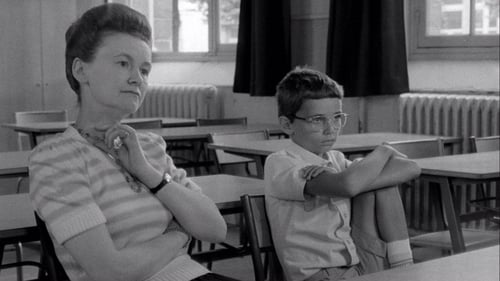
Novel
The child Ernesto doesn't want to go to school any more because, as he says, all he is taught there is things he doesn't know.

Short Story
The child Ernesto doesn't want to go to school any more because, as he says, all he is taught there is things he doesn't know.
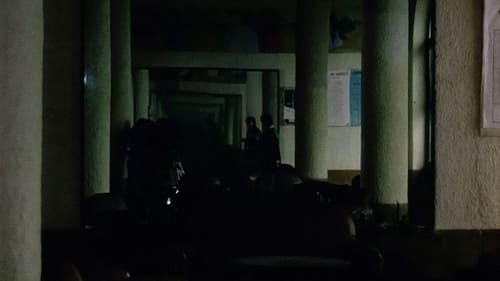
Narrator (voice)
한 여인이 보이지 않는 남자에게 끊임없이 사랑의 말을 보내는 이 영화는 "아가타와 끝없는 독서"의 연장으로 볼 수 있는 작품으로, 뒤라스 노년의 반려자였던 얀 안드레아의 존재와 더불어, 인물의 현존과 부재의 공존을 암전과 암흑으로 나타낸다. 눈 멂, 소멸, 그리고 어둠에 대한 지속적인 암시인 악명 높은 20분 간의 암전과 함께 간간이 푸른 화면도 등장한다.

Writer
한 여인이 보이지 않는 남자에게 끊임없이 사랑의 말을 보내는 이 영화는 "아가타와 끝없는 독서"의 연장으로 볼 수 있는 작품으로, 뒤라스 노년의 반려자였던 얀 안드레아의 존재와 더불어, 인물의 현존과 부재의 공존을 암전과 암흑으로 나타낸다. 눈 멂, 소멸, 그리고 어둠에 대한 지속적인 암시인 악명 높은 20분 간의 암전과 함께 간간이 푸른 화면도 등장한다.

Director
한 여인이 보이지 않는 남자에게 끊임없이 사랑의 말을 보내는 이 영화는 "아가타와 끝없는 독서"의 연장으로 볼 수 있는 작품으로, 뒤라스 노년의 반려자였던 얀 안드레아의 존재와 더불어, 인물의 현존과 부재의 공존을 암전과 암흑으로 나타낸다. 눈 멂, 소멸, 그리고 어둠에 대한 지속적인 암시인 악명 높은 20분 간의 암전과 함께 간간이 푸른 화면도 등장한다.
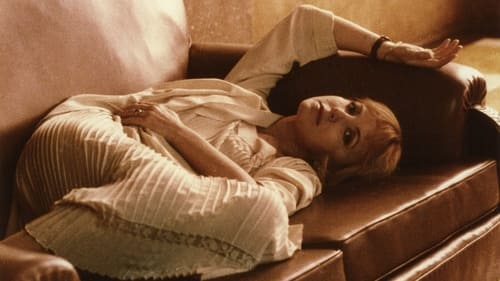
Narrator (voice)
18세의 어느 화창한 날, 아가타는 누군가와 사랑을 했었다. 지금 성인이 된 아가타는 바캉스 기간 동안 탐정소설을 쓰며 범죄의 재구성에서 쾌락을 느낀다. 영화의 대사들은 에드가 앨런 포우의 작품을 연상하게 하며, 이 영화가 그리는 아가타의 사랑에 대한 집착은 신화적 차원으로 전화한다.

Writer
18세의 어느 화창한 날, 아가타는 누군가와 사랑을 했었다. 지금 성인이 된 아가타는 바캉스 기간 동안 탐정소설을 쓰며 범죄의 재구성에서 쾌락을 느낀다. 영화의 대사들은 에드가 앨런 포우의 작품을 연상하게 하며, 이 영화가 그리는 아가타의 사랑에 대한 집착은 신화적 차원으로 전화한다.

Director
18세의 어느 화창한 날, 아가타는 누군가와 사랑을 했었다. 지금 성인이 된 아가타는 바캉스 기간 동안 탐정소설을 쓰며 범죄의 재구성에서 쾌락을 느낀다. 영화의 대사들은 에드가 앨런 포우의 작품을 연상하게 하며, 이 영화가 그리는 아가타의 사랑에 대한 집착은 신화적 차원으로 전화한다.

A documentary about filmmaker Marguerite Duras.
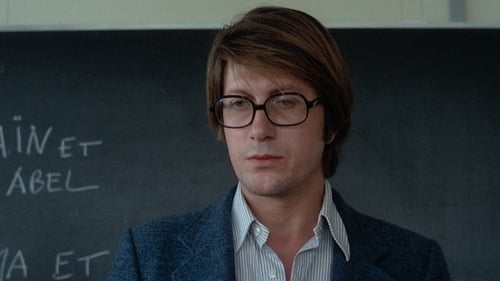
Herself (Archive sound)
고다르가 정치적 비디오 작업에 열을 올렸던 70년대를 마치고 극영화로 되돌아와 만든 첫 번째 작품으로 영화 감독과 애인, 창녀라는 세 인물을 통해 사랑과 성, 삶, 그리고 영화란 무엇인지에 대해 묻고 있다. 제작자인 폴 고다르는 편집일을 하는 드니즈 랭보와 연인 사이이다. 한편 폴은 창녀 이자벨의 단골 손님이기도 하다. 폴이 드니즈와 함께 시골 별장에 간 어느날, 때마침 이자벨 또한 그곳을 찾는다. ‘상상’, ‘상업’, ‘삶’, ‘음악’ 이라는 네 개의 파트로 이루어진 옴니버스 영화로 고다르 특유의 슬로우모션과 실험적인 기법, 매혹적인 이미지와 사운드들이 묘하게 어울린다.
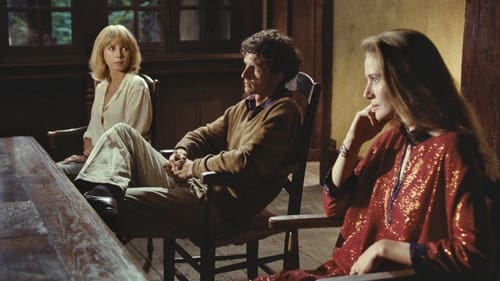
Screenplay
아무도 없는 파리의 거리와 공원, 그리고 텅빈 방의 이미지 위로 남자(브누아 자코)와 여자(마르그리트 뒤라스)의 나레이션이 흐른다. 파리의 남녀들이 독일 점령군이 설치했던 비밀 전화선을 이용해 사랑의 말을 나누는 가운데 시간은 멈춘 듯 느껴지고 무의미해 보이던 이미지에는 점차 정서가 깃들기 시작한다.

(voice)
아무도 없는 파리의 거리와 공원, 그리고 텅빈 방의 이미지 위로 남자(브누아 자코)와 여자(마르그리트 뒤라스)의 나레이션이 흐른다. 파리의 남녀들이 독일 점령군이 설치했던 비밀 전화선을 이용해 사랑의 말을 나누는 가운데 시간은 멈춘 듯 느껴지고 무의미해 보이던 이미지에는 점차 정서가 깃들기 시작한다.

Director
아무도 없는 파리의 거리와 공원, 그리고 텅빈 방의 이미지 위로 남자(브누아 자코)와 여자(마르그리트 뒤라스)의 나레이션이 흐른다. 파리의 남녀들이 독일 점령군이 설치했던 비밀 전화선을 이용해 사랑의 말을 나누는 가운데 시간은 멈춘 듯 느껴지고 무의미해 보이던 이미지에는 점차 정서가 깃들기 시작한다.
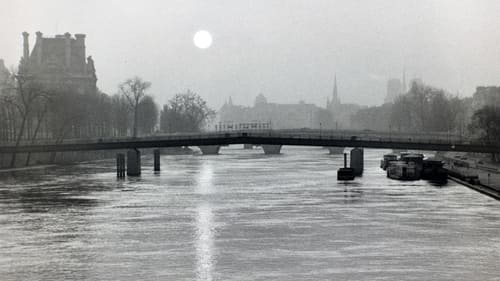
Narrator
Based on the letters of a fictitious poetess to her lover. Duras reads extracts from the letters, about the poetess’s Jewish past, while the film shows stark waves beating against the seashore. – BFI

Writer
Based on the letters of a fictitious poetess to her lover. Duras reads extracts from the letters, about the poetess’s Jewish past, while the film shows stark waves beating against the seashore. – BFI

Writer
Based on the letters of a fictitious poetess to her lover. Duras reads extracts from these letters, as the film shows a boat journey down the Seine, past familiar bridges and landmarks. – BFI

Director
Based on the letters of a fictitious poetess to her lover. Duras reads extracts from these letters, as the film shows a boat journey down the Seine, past familiar bridges and landmarks. – BFI

Director
Based on the letters of a fictitious poetess to her lover. Duras reads extracts from the letters, about the poetess’s Jewish past, while the film shows stark waves beating against the seashore. – BFI
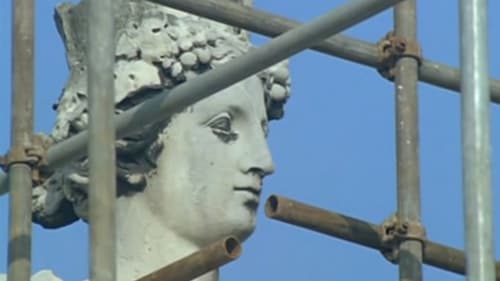
Writer
On images of the Tuileries Gardens, Marguerite Duras recalls Césarée, an ancient destroyed city.

Director
On images of the Tuileries Gardens, Marguerite Duras recalls Césarée, an ancient destroyed city.

Narrator (voice)
Duras narrates a short story while the camera travels through the streets of Paris with short interludes of solemn music.

Writer
Duras narrates a short story while the camera travels through the streets of Paris with short interludes of solemn music.

Director
Duras narrates a short story while the camera travels through the streets of Paris with short interludes of solemn music.
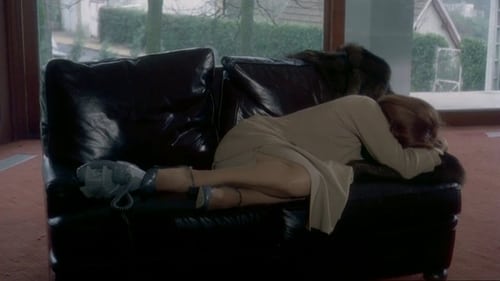
Narrator (voice) (uncredited)
영화는 스크린에 나타나는 베라 박스터라는 여인과 부재하는 그녀의 남편 장 박스터에 대한 초상이다. 베라 박스터는 바캉스를 보낼 장소를 임대하기 위해 영화 속의 집을 찾아온다. 한편, 베라 박스터를 한 낯선 여인이 찾아오는데, 나이가 같고 모습이 비슷한 여인에게 말을 거는 베라의 모습은 거울을 보는 여인처럼 그려진다. 수자나 앤들러의 희곡을 뒤라스가 각색한 작품.

Writer
영화는 스크린에 나타나는 베라 박스터라는 여인과 부재하는 그녀의 남편 장 박스터에 대한 초상이다. 베라 박스터는 바캉스를 보낼 장소를 임대하기 위해 영화 속의 집을 찾아온다. 한편, 베라 박스터를 한 낯선 여인이 찾아오는데, 나이가 같고 모습이 비슷한 여인에게 말을 거는 베라의 모습은 거울을 보는 여인처럼 그려진다. 수자나 앤들러의 희곡을 뒤라스가 각색한 작품.

Director
영화는 스크린에 나타나는 베라 박스터라는 여인과 부재하는 그녀의 남편 장 박스터에 대한 초상이다. 베라 박스터는 바캉스를 보낼 장소를 임대하기 위해 영화 속의 집을 찾아온다. 한편, 베라 박스터를 한 낯선 여인이 찾아오는데, 나이가 같고 모습이 비슷한 여인에게 말을 거는 베라의 모습은 거울을 보는 여인처럼 그려진다. 수자나 앤들러의 희곡을 뒤라스가 각색한 작품.
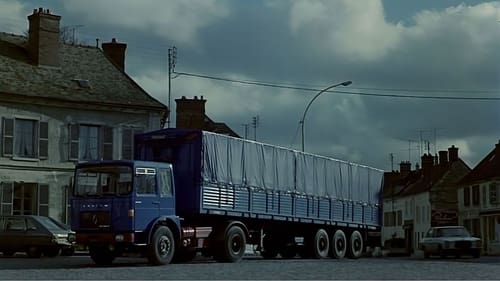
Writer
In this most talky and personal of films, director Marguerite Duras and actor Gerard Depardieu do an on-camera read-through of a movie script. Occasionally, the director comments about the characters or their motivations, and sometimes the actor does. That's all -- there is no action, there are no location shots, no one pretends to be anything else. The script itself tells about an encounter between a blank-slate of a woman hitchhiker, and a communist truck driver. As the reading progresses, Duras comments bitterly about the failed ideals of communism and the glorious revolution that will probably never happen.

elle
In this most talky and personal of films, director Marguerite Duras and actor Gerard Depardieu do an on-camera read-through of a movie script. Occasionally, the director comments about the characters or their motivations, and sometimes the actor does. That's all -- there is no action, there are no location shots, no one pretends to be anything else. The script itself tells about an encounter between a blank-slate of a woman hitchhiker, and a communist truck driver. As the reading progresses, Duras comments bitterly about the failed ideals of communism and the glorious revolution that will probably never happen.

Director
In this most talky and personal of films, director Marguerite Duras and actor Gerard Depardieu do an on-camera read-through of a movie script. Occasionally, the director comments about the characters or their motivations, and sometimes the actor does. That's all -- there is no action, there are no location shots, no one pretends to be anything else. The script itself tells about an encounter between a blank-slate of a woman hitchhiker, and a communist truck driver. As the reading progresses, Duras comments bitterly about the failed ideals of communism and the glorious revolution that will probably never happen.

Screenplay
An old lady returns from Africa where she made a fortune to find her son in Paris, whom she has not seen in five years, with the intention of bringing him back with her. But this project fails.

Theatre Play
An old lady returns from Africa where she made a fortune to find her son in Paris, whom she has not seen in five years, with the intention of bringing him back with her. But this project fails.

Director
An old lady returns from Africa where she made a fortune to find her son in Paris, whom she has not seen in five years, with the intention of bringing him back with her. But this project fails.
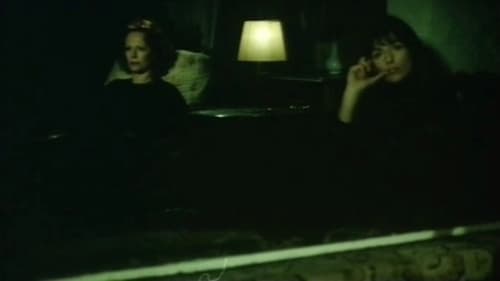
The full soundtrack to Marguerite Duras' 1975 film India Song, about a French ambassador's wife in 1930s India, is here repurposed with all new cinematography. As we hear all the dialogue of a bygone movie, we travel visually through images of absence and decay, bereft of life. It's the ghost of a film, and a further commentary on colonialism.

Writer
The full soundtrack to Marguerite Duras' 1975 film India Song, about a French ambassador's wife in 1930s India, is here repurposed with all new cinematography. As we hear all the dialogue of a bygone movie, we travel visually through images of absence and decay, bereft of life. It's the ghost of a film, and a further commentary on colonialism.

Director
The full soundtrack to Marguerite Duras' 1975 film India Song, about a French ambassador's wife in 1930s India, is here repurposed with all new cinematography. As we hear all the dialogue of a bygone movie, we travel visually through images of absence and decay, bereft of life. It's the ghost of a film, and a further commentary on colonialism.
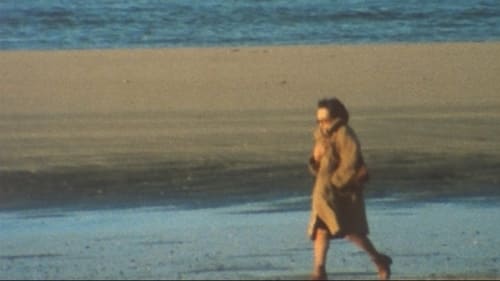
Her whole childhood, Marguerite Duras spent her time moving. Her house in Neauphle-le-Château is the one she has lived in the most, and the one she says: “All the women in my books have lived in this house. All ... ” Duras tells about her house and her garden closely linked to his work, remembers the forest of her childhood and evokes her fear of music.
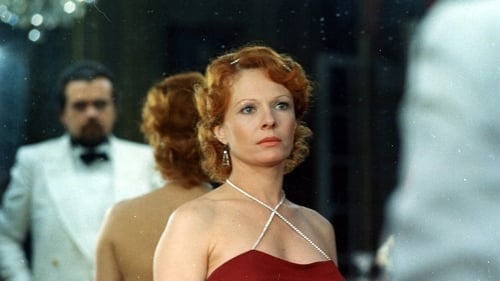
Voix Intemporelle (voice)
1930년대의 인도. 프랑스 대사관 부영사의 아내인 안느 마리는 인도의 더운 날씨가 견딜 수 없이 싫다. 그녀는 인도의 더위와 답답한 생활에 짜증이 나기 시작하고, 그 짜증은 덥다는 이유로 인도를 좋아하는 사람들에 대한 적개심으로까지 발전한다. 그리고 그 모든 것을 잊기 위해 안느는 사랑을 찾아나선다. 한편, 그녀의 남편은 아내의 외도를 알고 있지만 아내가 왜 그런 행동을 하는지 이해하고 짐짓 모른 척 지낸다. 그러나 그녀가 정작 원했던 것은 남편의 사랑이었다. 단지 그가 요구하지 않았기 때문에 밖으로만 나돌았던 것. 남편은 그 사실을 알고 당황한다.

Writer
1930년대의 인도. 프랑스 대사관 부영사의 아내인 안느 마리는 인도의 더운 날씨가 견딜 수 없이 싫다. 그녀는 인도의 더위와 답답한 생활에 짜증이 나기 시작하고, 그 짜증은 덥다는 이유로 인도를 좋아하는 사람들에 대한 적개심으로까지 발전한다. 그리고 그 모든 것을 잊기 위해 안느는 사랑을 찾아나선다. 한편, 그녀의 남편은 아내의 외도를 알고 있지만 아내가 왜 그런 행동을 하는지 이해하고 짐짓 모른 척 지낸다. 그러나 그녀가 정작 원했던 것은 남편의 사랑이었다. 단지 그가 요구하지 않았기 때문에 밖으로만 나돌았던 것. 남편은 그 사실을 알고 당황한다.

Director
1930년대의 인도. 프랑스 대사관 부영사의 아내인 안느 마리는 인도의 더운 날씨가 견딜 수 없이 싫다. 그녀는 인도의 더위와 답답한 생활에 짜증이 나기 시작하고, 그 짜증은 덥다는 이유로 인도를 좋아하는 사람들에 대한 적개심으로까지 발전한다. 그리고 그 모든 것을 잊기 위해 안느는 사랑을 찾아나선다. 한편, 그녀의 남편은 아내의 외도를 알고 있지만 아내가 왜 그런 행동을 하는지 이해하고 짐짓 모른 척 지낸다. 그러나 그녀가 정작 원했던 것은 남편의 사랑이었다. 단지 그가 요구하지 않았기 때문에 밖으로만 나돌았던 것. 남편은 그 사실을 알고 당황한다.
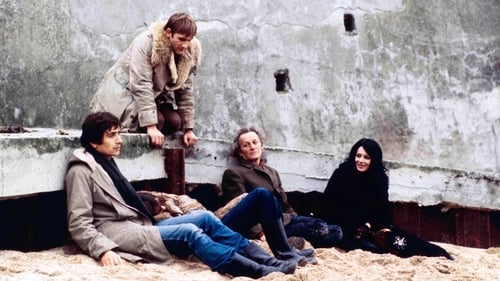
Voice
A man returns to the place he once lived a passionate love affair with a woman who is now dead. So powerful are the emotions that seize him that he imagines she is still alive, and begins to live as if this were the case...

Writer
A man returns to the place he once lived a passionate love affair with a woman who is now dead. So powerful are the emotions that seize him that he imagines she is still alive, and begins to live as if this were the case...

Director
A man returns to the place he once lived a passionate love affair with a woman who is now dead. So powerful are the emotions that seize him that he imagines she is still alive, and begins to live as if this were the case...

(voice)
한 여자와 그녀의 친구와 두 명의 딸 그리고 그들을 방문한 외판원의 이야기. 한 여자가 사무실에 있다. 교장으로 보이는 그녀는 오후에 학부모를 맞이하는데, 외판원이 그녀들을 방문한다. 여러 사람이 머물다 가는 오래된 집을 주인공으로 삼아 시멘트 너머의 기억에서 바다의 흐름을 불러내는 신비한 연금술을 보여주는 이 작품의 촬영은 노플르샤토에 있는 마르그리트 뒤라스의 집에서 이 주 동안 진행되었다. 스타 배우 제라르 드파르디유가 맡은 ‘외판원’이란 직업은 자본주의의 비인간화가 낳은 타락을 상징하고, 뒤라스는 줄기차게 이를 비판한다.

Author
한 여자와 그녀의 친구와 두 명의 딸 그리고 그들을 방문한 외판원의 이야기. 한 여자가 사무실에 있다. 교장으로 보이는 그녀는 오후에 학부모를 맞이하는데, 외판원이 그녀들을 방문한다. 여러 사람이 머물다 가는 오래된 집을 주인공으로 삼아 시멘트 너머의 기억에서 바다의 흐름을 불러내는 신비한 연금술을 보여주는 이 작품의 촬영은 노플르샤토에 있는 마르그리트 뒤라스의 집에서 이 주 동안 진행되었다. 스타 배우 제라르 드파르디유가 맡은 ‘외판원’이란 직업은 자본주의의 비인간화가 낳은 타락을 상징하고, 뒤라스는 줄기차게 이를 비판한다.

Director
한 여자와 그녀의 친구와 두 명의 딸 그리고 그들을 방문한 외판원의 이야기. 한 여자가 사무실에 있다. 교장으로 보이는 그녀는 오후에 학부모를 맞이하는데, 외판원이 그녀들을 방문한다. 여러 사람이 머물다 가는 오래된 집을 주인공으로 삼아 시멘트 너머의 기억에서 바다의 흐름을 불러내는 신비한 연금술을 보여주는 이 작품의 촬영은 노플르샤토에 있는 마르그리트 뒤라스의 집에서 이 주 동안 진행되었다. 스타 배우 제라르 드파르디유가 맡은 ‘외판원’이란 직업은 자본주의의 비인간화가 낳은 타락을 상징하고, 뒤라스는 줄기차게 이를 비판한다.

Writer
The whole film takes place in a single room where representatives of the two political forces and their enemy "the Jew" are gathered. A female character establishes the dialogue between these individuals and comments on the ideology of each; Until the final scene where everyone seems to rally to a common idea.

Director
The whole film takes place in a single room where representatives of the two political forces and their enemy "the Jew" are gathered. A female character establishes the dialogue between these individuals and comments on the ideology of each; Until the final scene where everyone seems to rally to a common idea.

Writer
숲 속에 있는 한 호텔에서, 서로를 알지 못하는 세 투숙객이 서로를 바라본다. 여러 인물이 서로를 다른 시점에서 바라보는 구조이다. 예를 들면 한 사람이 다른 사람을 바라볼 때, 또 다른 사람이 그 사람을 바라보고, 화자 혹은 서술하는 역활의 무언가가 각 이야기를 종합하고, 이 눈들이 바라보는게 무엇인지 말해주는 식이다.

Director
숲 속에 있는 한 호텔에서, 서로를 알지 못하는 세 투숙객이 서로를 바라본다. 여러 인물이 서로를 다른 시점에서 바라보는 구조이다. 예를 들면 한 사람이 다른 사람을 바라볼 때, 또 다른 사람이 그 사람을 바라보고, 화자 혹은 서술하는 역활의 무언가가 각 이야기를 종합하고, 이 눈들이 바라보는게 무엇인지 말해주는 식이다.

Theatre Play

Self
Here Duras assumes a more distant role, less an interviewer than an invested documentarian. Her questions precede footage of her main subject, the sixteen-year-old Romain Goupil, recently excluded from the lycée, among his peers and fellow student revolutonaries. After we see them discuss the complexities of their position and deal with internal dissent, Duras asks Romain if he ever forgets how young he is. Romain replies with a grin: “Totally.”

Self
During this strange and confrontational interview, Duras takes on France’s only female prison warden. In the women’s verbal wrangling we find reflected many contemporary concerns surrounding the ongoing moral disaster of the prison industrial complex.

Writer
A husband and wife meet three years after their formal separation, when they return to the provincial town where they once lived to pick up their divorce decree.

Director
A husband and wife meet three years after their formal separation, when they return to the provincial town where they once lived to pick up their divorce decree.
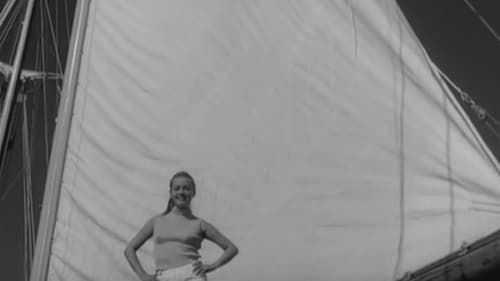
Writer
Alan, after quarreling with his girlfriend Sheila, becomes intrigued by Anna, a mysterious widow who's searching for a sailor she had known many years before. Alan and Anna begin the search on board a yacht bound for Greece, but they don't find the sailor. After a stop in Africa, Louis de Mozambique joins the party and suggests that the sailor may never have existed other than in Anna's mind.
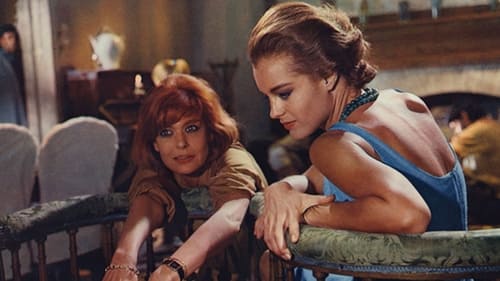
Novel
A female traveling companion seduces a married man and his alcoholic wife.

Screenplay
A female traveling companion seduces a married man and his alcoholic wife.
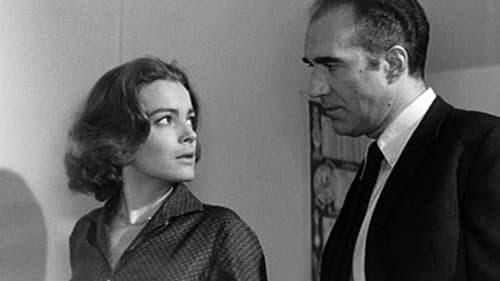
Writer
Drama of an unmarried mother who regrets having had her child fostered and fights its foster parents to have it restored to her.

Writer
A sexually repressed school teacher releases her pent up passions in a series of shocking crimes.
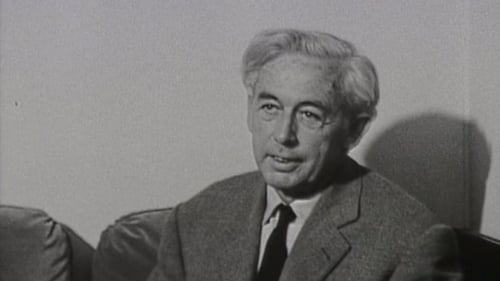
Self
A documentary, originally produced in 1966 for the French TV series "Pour le plaisir," about Robert Bresson's film "Au Hasard Balthazar," featuring interviews and discussions with Bresson, Jean-Luc Godard, Louis Malle, Marguerite Duras and others.

Self
Duras, ever the challenging interviewer, forensically questions a Parisian zookeeper regarding the happiness of the animals in his charge. Intercut with her questions is stark black-and-white footage of the animals themselves behind bars, as they pace the length of their small concrete enclosures. Duras is very much on the side of the big cats. “Are you ever careless?” she asks the zookeeper. When he replies in the negative, Duras says smilingly: “In your position I’d be tempted to be careless”.

Report on the young people of the yéyé period and pop music. Jerk at the Palladium, Beatles, press clippings, questions about the impact of fashion (long hair and accoutrements) and modernity, youth, change, freedom.

Writer
The movie "L'instant de la paix" consists of three segments: 1. "Les rideaux blancs" (France) 2. "Berlin N 65" (West Germany) 3. "Matura" (Poland)

Self
In this episode of Dim Dam Dom, Duras interviews the stripper Lolo Pigalle. A clip of Lolo dancing in a golden dress is followed by an intense and intimate conversation in which Lolo discusses the definition of work, the splitting of the self, and acting vs. sex work.

Self
Duras interviews an exhausted Jeanne Moreau, addressing her friend as vous, despite the fact "the two were close friends for many years, living in neighbouring houses and cooking for each other from the early ‘60s.
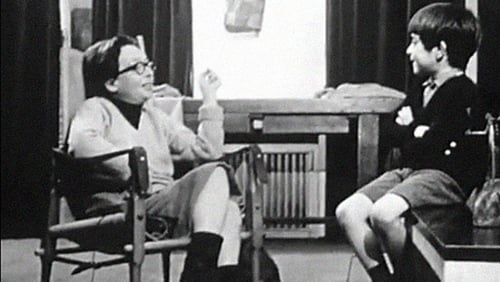
Broadcast once a month, Dim Dam Dom was a TV variety show on the second channel of French public television agency ORTF made up of a series of short sequences presented by one–off guest presenters. On the 30th of April 1965, Marguerite Duras interviewed François, a little seven-year old boy. Duras asked him what he thought about the inventions of the future, school, the usefulness of TV, "Belphégor" and talking horses. Francois answered the writer’s cunning questions with humour, candour and poetry.

Writer
Marin Karmitz's avant-garde short film is a haunting tale about an alcoholic novelist facing a crippling case of writer's block.
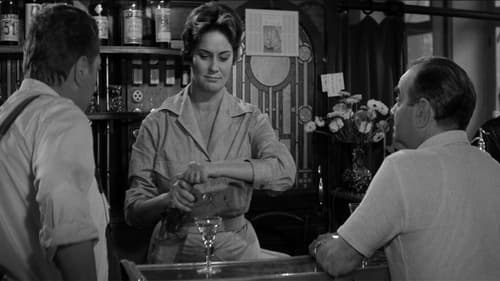
Writer
Therese, a café owner, mourns the mysterious disappearance of her husband sixteen years earlier. A tramp arrives in the town and she believes him to be her husband. But he is suffering from amnesia and she tries to bring back his memory of earlier times.
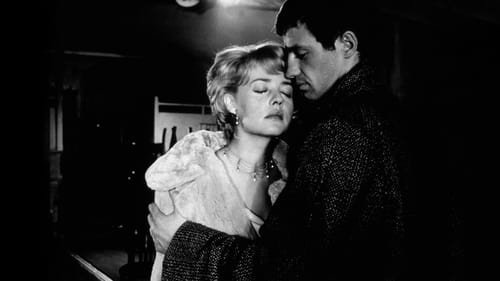
Adaptation
Anne Desbarèdes is a young woman who is married to a wealthy businessman and lives a monotonous existence in the small commune town of Blaye. After indirectly witnessing a murder in a café, she returns to the scene of the crime the next day and meets Chauvin, who informs her in more detail about the events that took place. Mentally unbalanced, Anne begins to believe that Chauvin intends to kill her.

Novel
Anne Desbarèdes is a young woman who is married to a wealthy businessman and lives a monotonous existence in the small commune town of Blaye. After indirectly witnessing a murder in a café, she returns to the scene of the crime the next day and meets Chauvin, who informs her in more detail about the events that took place. Mentally unbalanced, Anne begins to believe that Chauvin intends to kill her.
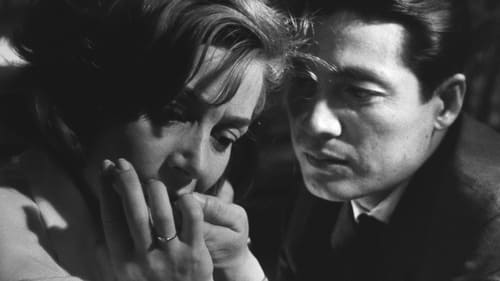
Screenplay
영화 <평화>를 촬영하기 위해 히로시마에 온 프랑스 여배우 '그녀'는 일본인 건축가, '그'와 우연히 만나 이틀간의 관계를 가진다. 그러나 히로시마에 머물러 달라는 남자의 청을 무언가에 사로잡혀 있는 듯한 그녀는 거절한다. 그녀에겐 고향 느베르에서 자신의 첫사랑인 독일군 병사와의 사랑의 대가로 죽음을 목격하고, 그 사랑의 이름으로 지하실에 감금되어 끔찍한 고통을 겪은 상처가 존재한다. 사랑으로 인한 좌절과 고통, 그리고 절망이라는 이름의 과거가 떠나질 않는다. 원자폭탄이 투하된 도시, 히로시마에서 그녀의 고통스러웠던 과거가 현실과 중첩되면서 그와 그녀의 침묵의 대화는 이어진다.
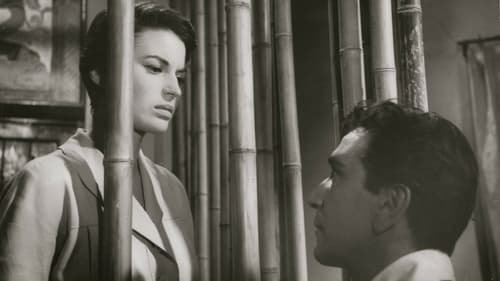
Novel
Twenty-year-old Joseph and his sixteen-year-old sister Suzanne live in the merciless conditions of an intemperate foreign land with their widowed mother. Their mother attempts to exert a hold on her children by involving them in the family's run-down rice plantation. However the siblings seek liberation, and look for this in their romantic lives. Suzanne becomes involved with Michael and Joseph finds a love interest in Claude.

Herself
Marguerite Duras.is interviewed twice, first in 1984 and then in 1993, on her life and work as a writer and filmmaker.
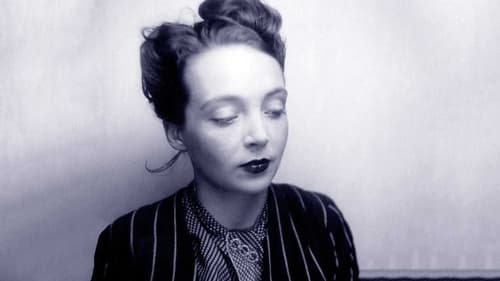
Self
Marguerite Duras still has much to tell us about her words and about her silences. In this film, hers is the only voice we hear. She talks about herself, without excuses, and with the keen wit, the humour, and the straightforward attitude that became her trademark.

Self

Herself
In this interview with Dominique Noguez, Marguerite Duras talks successively about each of her four short films made in 1979: Césarée, Les Mains négatives, Aurélia Steiner (Melbourne), Aurélia Steiner (Vancouver). She touches briefly on the various subjects dealt with: the return to Césarée of Berenice, repudiated for reasons of state, Jewish wandering, the scandal of the camps in the two Aurelia Steiner. Negative Hands as the colonial data of humanity, a film offered to the blacks and Portuguese who clean up Paris before leaving the place. Marguerite Duras also comments, with excerpts, on the various traveling shots that make up the main plot of each of the short films. And the documentary ends with a few words of epilogue: a real pamphlet by Marguerite Duras against dreams, significantly entitled Work and Words.





































































































